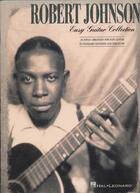-
Nombre de pages : (-)
-
Collection :
(-)
-
Genre :
(-)
-
Thème :
Non attribué
-
Prix littéraire(s) :
(-)
Résumé:
No modern intervention is intended to endure indefinitely; indeed some fashion of exit is always envisioned from the outset. This commitment to an exit is normally informed by an exit strategy. Whilst strategies of closure have been scrutinised recently, not least in light of charges of... Voir plus
No modern intervention is intended to endure indefinitely; indeed some fashion of exit is always envisioned from the outset. This commitment to an exit is normally informed by an exit strategy. Whilst strategies of closure have been scrutinised recently, not least in light of charges of defective intentions and planning, the relations between the strategies, operations and tactics of exit have not been contextualised. Focus on the local, specific and bottom-up manifestations of transitions offers significant enhances to historical, theoretical and applied understandings.
This book is an introduction not just to the issues of transition, handover and withdrawal, but to exit as a package of theoretical concepts and how these have been understood, shaped and employed in historic and contemporary perspective. Drawing on a wide range of post-1945 examples derived from a variety of regions and periods, At the End of Military Intervention provides researchers and practitioners with a source book on what forms a crucial and often overlooked element of past and present interventions.
Donner votre avis









